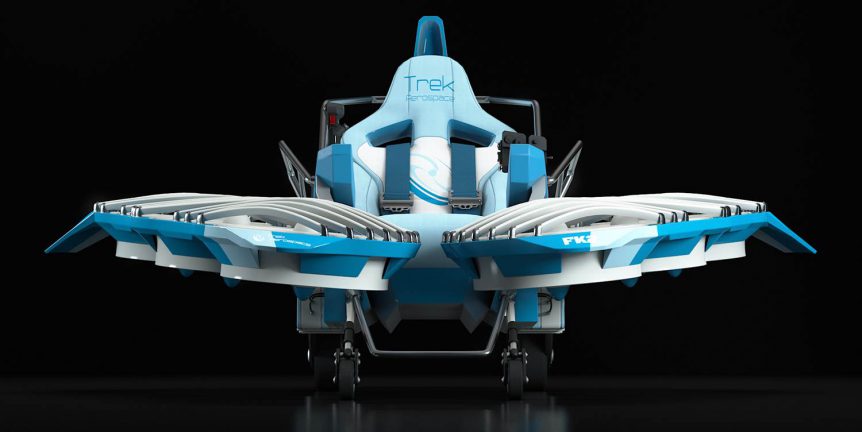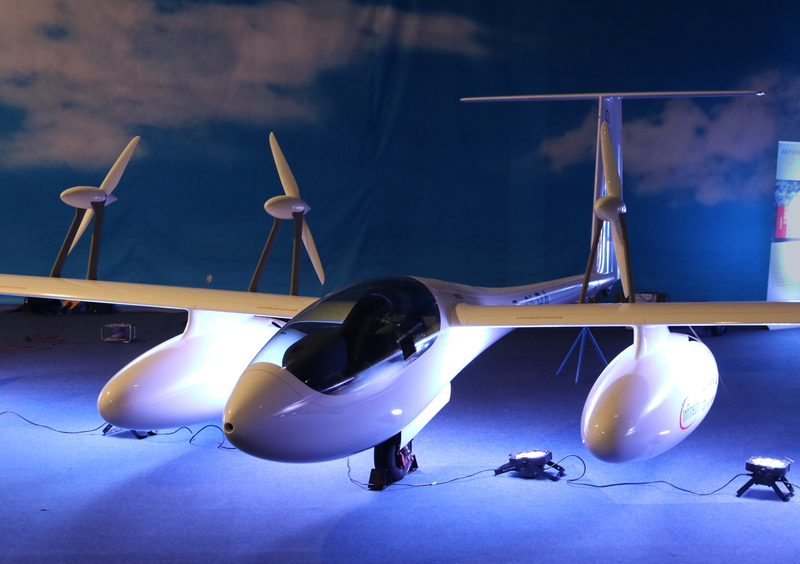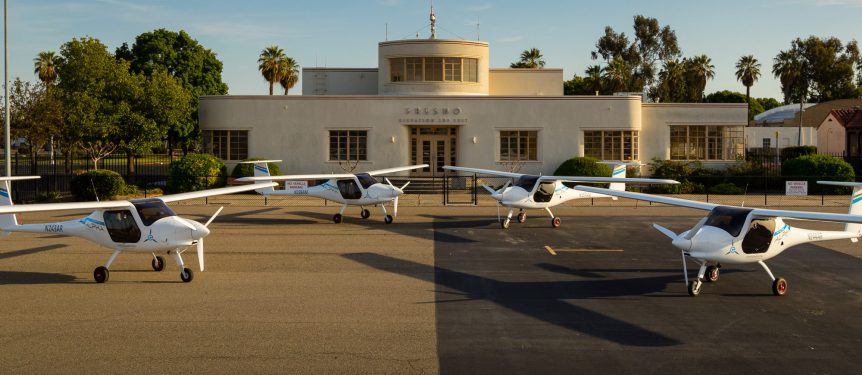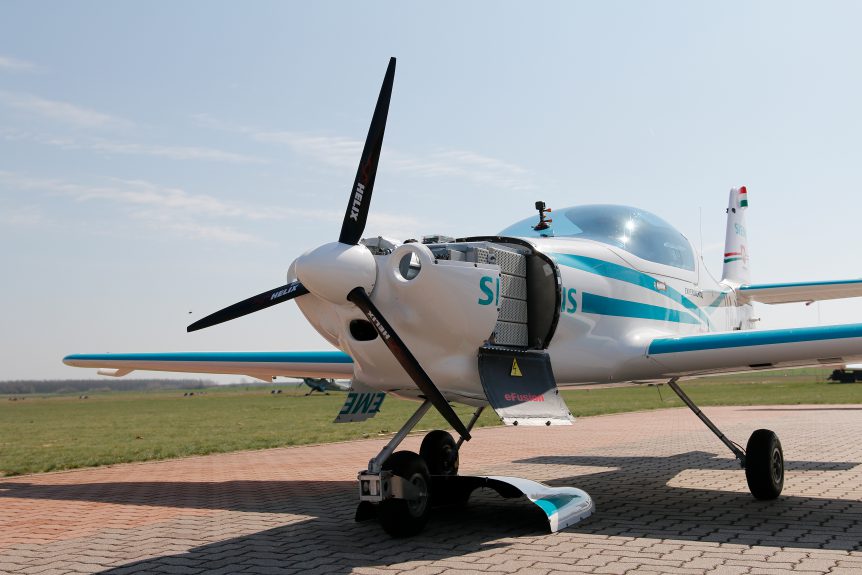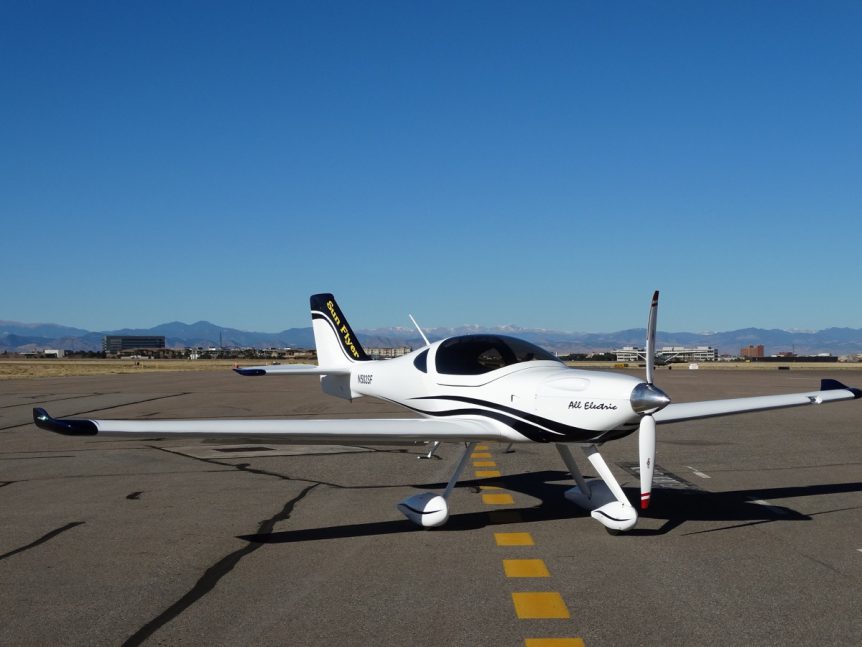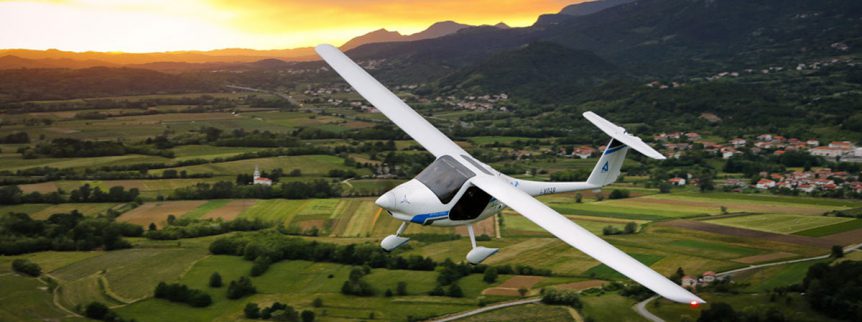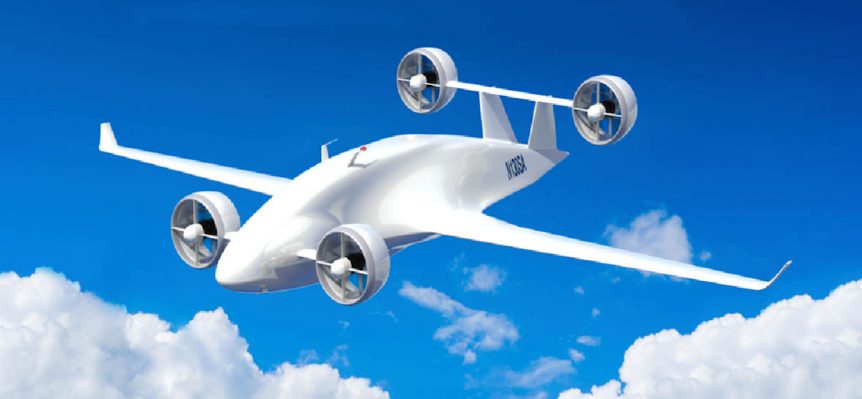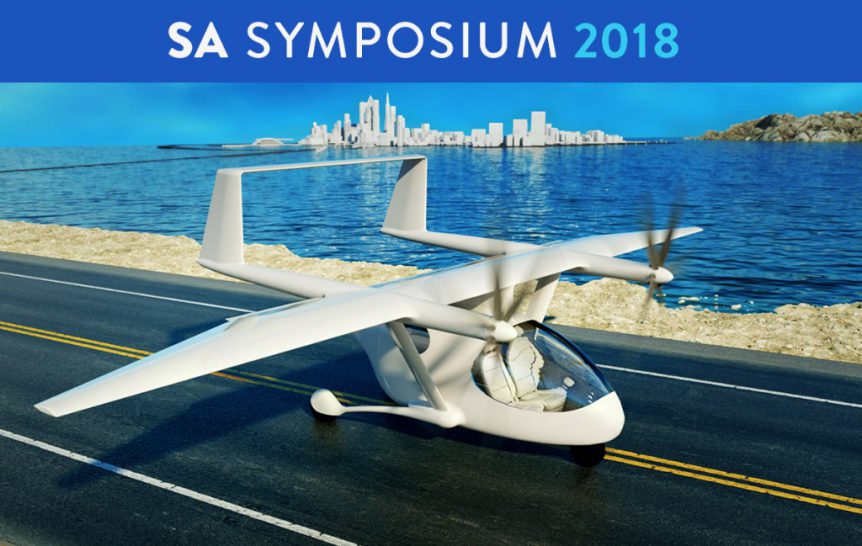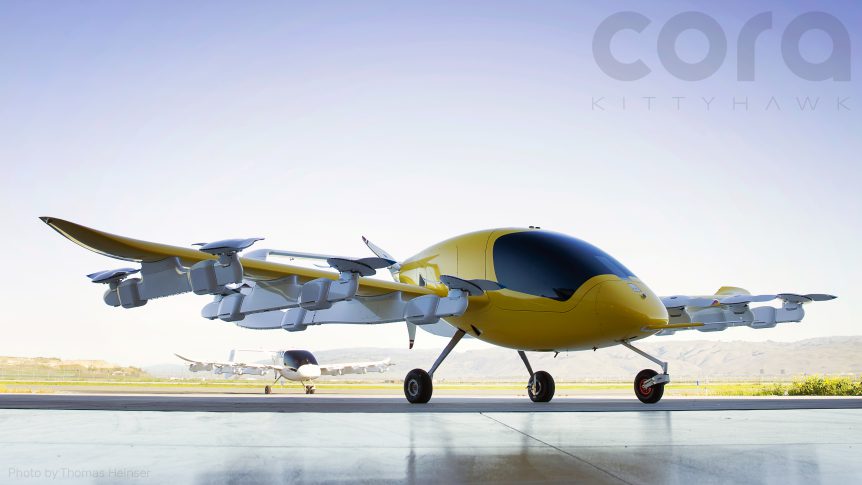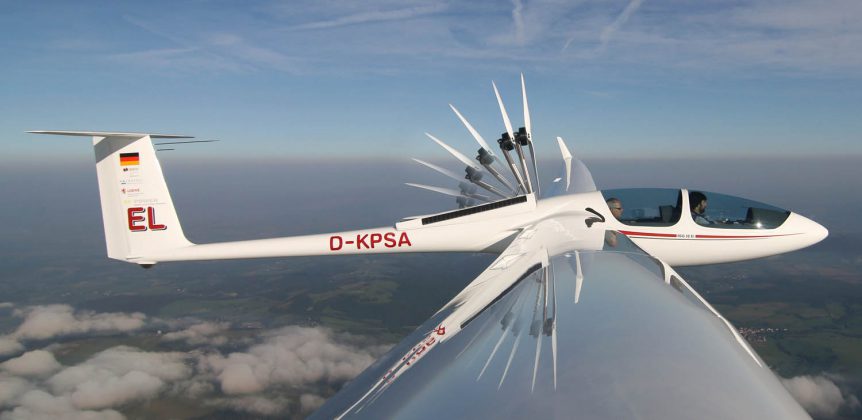Boeing just announced the ten winners of Phase I in its GoFly competition, in which entrants design, build and fly a “personal flying device.” As Boeing explains, contest rules are designed to enable entrants “To foster the development of safe, quiet, ultra-compact, near-VTOL personal flying devices capable of flying twenty miles while carrying a single person.” The list of partners and co-sponsors is impressive and includes virtually all major American aviation advocacy groups. As the Green Flight Challenge demonstrated seven years ago, prize money encourages a grand series of investments by individuals in hopes of winning a prize. In this case, 3,000 entries by 725 teams from 95 countries presented drawings and documents describing their proposed PFD, with a select 10 advancing to Phase II, which will require a demonstration of the proposed machine’s ability to perform as promised. “To be able to engage so many individuals from leading universities, major corporations and startups, and connect them through our community …
Lange Research Shows Six-Motor, Fuel-Cell Driven E2 at Aero Expo
Lange Aviation explained the large glider-like machine on display at the 2018 Aero Expo this way: “During this year’s AERO in Friedrichshafen, a mock-up of the Antares E2 was displayed publicly for the first time by our sister company, Lange Research Aircraft GmbH. The Antares E2 is an aircraft with an extreme endurance and very high reliability, which has been designed primarily to address maritime monitoring tasks such as fishery control. In order to fulfill the design goals, a novel propulsive system using six fuel-cell systems and six over-wing propulsors has been developed. A Large, Heavy Machine Beyond Glider Status Weighing in at a hefty 1,650 kilograms (3,630 pounds), the Lange E2 carries that weight on a 23 meter (75.45 feet) wingspan. Part of that is the 300 kilograms (660 pounds) of methanol that powers the six 6.7 kilowatt (8.98 horsepower) fuel cells that in turn power the six 15 kilowatt (20.1 hp.) motors. High wing loading brings high speed, …
Alpha Electro Achieves FAA Certification
A Big Day in Fresno Following certification for Pipistrel’s Alpha Electro trainer in Australia, China, and Canada, the FAA presented this highly-valued acknowledgment that the aircraft meets current airworthiness standards. After waiting for the agency to remove the restrictive word “reciprocating” from its Light Sport Aircraft regulations, electric aircraft designers have permission to field aircraft with truly modern powerplants. With FAA inspectors painstakingly perusing every part of the Electros, a formal presentation followed, enabling the Sustainable Aviation Project to move forward with plans to bring low-cost pilot training to the Fresno, California area. Officials from the four cities in which Alpha Electros will be hangared were on hand to lend encouragement during the public flight displays of the aircraft. For a thoroughly modern design, the Alpha Electro is very light, at 368 kilograms (809 pounds) with batteries. Compare that to a Piper J3 Cub, which with a 65-horsepower Continental engine weighed 765 pounds empty. Adding 12 gallons of gasoline to …
Two Siemens-Powered Electric Aircraft Debut
A U. S. Debut in Chicago Mary Grady, writing in AVweb, reports that “Siemens brought its prototype electric aircraft to the U.S. this week for the first time, showcasing the airplane at the company’s Innovation Day in Chicago. ‘Electric propulsion is one of the transformative technologies that will help the industry meet the goals of reduced fuel, emissions and noise,’ said Teri Hamlin, vice president of electric propulsion for Siemens. ‘By accomplishing testing on our systems on select flying testbeds in the lower power classes, we are gaining valuable experience and knowledge that accelerates and validates our other developments in hybrid-electric propulsion systems in the high power classes.’“ Testing in Waco Further testing of the technology will take place in Waco, Texas, at the Texas State Technical College Airfield. The eFusion with its Siemens 55-kilowatt electric propulsion unit, “Will be key in data collection on new electric propulsion systems, enabling safety standards and certification efforts for the aerospace market.” Lessons …
Sunflyer Takes to the Air
Following assorted powerplant and taxi texts, the prototype Sun Flyer 2 prototype took to the air over Centennial Airport (KAPA) south of Denver, Colorado. Further tests will expand speed, altitude, and endurance capabilities, according to Bye Aerospace. George Bye, Founder and CEO of Bye Aerospace, enthused, “We are excited about the future and the potential the Sun Flyer family of aircraft has to revolutionize general aviation, providing improved affordability and accessibility. Lower operating costs are key to solving the student pilot drop-out rate, which is curtailing the successful attainment of badly needed airline pilots. The Sun Flyer 2’s $3 hourly operating costs are 10 times lower than traditional piston-engine flight trainers, with no carbon emissions and significantly reduced noise.” Such economies have probably contributed to the 121 reservations for Sun Flyers by organizations such as Spartan College of Aeronautics and Technology, where students might be able to avoid taking out loans to obtain their licenses and ratings. According to Aviation …
Pipistrel Alpha Electros Come to California
News from Joseph Oldham, founder of the Sustainable Aviation Project, and Michael Coates, United States master distributor for Pipistrel Aircraft, heralds the largest delivery of electric training aircraft to date. Four Pipistrel Alpha Electro Trainers showed up at Fresno, California’s Chandler Airport, all part of the Sustainable Aviation Project. Described as “a public-private collaboration to reduce the cost of flight training through the use of all-electric general aviation airplanes,” the Project might become a role model for future electric flight training. On March 19, two 18-wheel trucks delivered two 40-foot shipping containers. Each container carried two Alpha Electros, two chargers, and a pair of replacement battery packs for each airplane. It took a mere two hours for a volunteer crew of up to six to remove the aircraft and chargers from the containers, leaving an X-Alpha simulator to be sent on its lonely way to Cypress College in Los Angeles. Michael Coates reported, “After removing all the plastic wrapping it …
Slept in? 2018 SAS Early Bird Registration Extended!
For those wishing you’d acted sooner, early bird registration for the 2018 Sustainable Aviation Symposium has been extended until April 6. You can still sign up for an opportunity to hear and see the best in cutting-edge presentations by experts in aerodynamics, electric power systems, and future flight controls at the urban and national levels. We’ve added speakers since you last looked. Ed Reyes, CEO of Sabrewing Aircraft Company, is ready to share his leadership experience on the Global Hawk project, and how Sabrewing is building a regional unmanned cargo aircraft that can lift 2 metric tons. Sabrewing is also the only American team chosen to participate in the Pacific Drone Challenge™ to fly from Japan to the Silicon Valley in 2019. Dr. Daniel Sperling, Professor and Founding Director of the Institute of Transportation Studies – UC Davis, and part of the 2007 Nobel Prize-winning Intergovernmental Panel on Climate Change team, will share insights included in his new book, Three Revolutions, …
Electric Triplanes, Personal Sky Taxis, and Urban Mobility beyond Belief
The Third Annual Sustainable Aviation Symposium again promises to be the premier gateway to innovation, mind-expanding discussions, and a glimpse into the future that this gathering will help make possible. Reserve your spot today to be on the leading edge of that future. VTOLs, ESTOLs and the Future of Sky Transit, May 11 and 12 in the beautiful Grand Ballroom of the Pullman Hotel San Francisco Bay in Redwood City, will go beyond the technical to the truly world-changing. We’re going to explore some big issues: “How can we make electric aviation broadly accessible and of meaningful scale, in terms of climate change, renewable energy, urban communities, and global markets?” “How can aviation make human life better? Join us to answer these and other questions. SAS have a faculty of visionary speakers, from an urban planner who manages to live in Los Angeles without a car, to a Scottish designer bringing back triplanes – with hybrid electric power. A Dazzling …
Zee? Kitty Hawk? Cora?
Different Names, Different Configurations Zee, One of two aircraft companies funded by Google founder and CEO Larry Page, has been a highly mysterious business. Its web pages mostly gave discrete job descriptions for those willing to sign up for a mostly undefined mission. Occasional glimpses of patent drawings, spy shots of a multi-rotor craft in Google’s Mountain View, California parking lot came into view, and later, in-flight shots of other, different looking craft came from Hollister, California. Kitty Hawk, the other company funded by Larry Page, seems to have subsumed Zee and produced a 12-rotor, single-propeller aerial taxi about the size of a Cessna 150, but capable of vertical takeoffs and landings and seamless transitions to forward flight. A white example has flown at Hollister airport and a yellow version at a field in New Zealand. An Almost Epic Journey The intellectual, physical and geographical journey of this craft is almost epic, and seems to have resulted in a 13-motored …
Schleicher’s Sustainable Flight for Two
Alexander Schleicher Segelflugzeugbau (sailplane maker) has been crafting high-performance soaring craft since its inception in 1927. Their latest creation, a two-seat, 20-meter (65.6 feet) span motorsegler, the ASG32 El, includes a 25 kilowatt synchronous motor driving a Schleicher-designed 1.55 meter (5 feet) retractable propeller. The motor is a “home help” device, a sustainer motor to keep the ASG 32 El aloft once it is launched by a winch or by being pulled by a towplane. The motor does not allow for self-launching. Its low power, coupled with the airplane’s clean design, does enable a 1.3 meter-per-second (255 feet per minute) rate of climb. The aircraft’s battery is sufficient for 20 minutes of all-out power or 100 kilometers (62 miles) of “sawtooth” flight, short climbs followed by longer glides, even with a full load of two pilots. A single control level raises the motor and propeller into operating position, and when pushed further, turns the motor on and controls the …

